Atheism (Sanskrit: निरीश्वरवाद, nir-īśvara-vāda, lit. "statement of no Lord", "doctrine of godlessness") or disbelief in God or gods has been a historically propounded viewpoint in many of the orthodox and heterodox streams of Hindu philosophies.
There are Nine(6+3) schools in Hinduism:
1.Samkhya, an atheistic and strongly dualist theoretical exposition of consciousness and matter.
2.Yoga, a school emphasising meditation, contemplation and liberation.
3.Nyaya or logic, explores sources of knowledge. Nyāya Sūtras.
4.Vaisheshika, an empiricist school of atomism
5.Mīmāṃsā, an anti-ascetic and anti-mysticist school of orthopraxy
6.Vedānta, the last segment of knowledge in the Vedas, or the 'Jnan' (knowledge) 'Kanda' (section). Vedanta came to be the dominant current of Hinduism in the post-medieval period.
1.Cārvāka, a materialism school that accepted free will exists
2.Buddhism, based on the teachings and enlightenment of Siddhartha Gautama
3.Jainism, based on the belief in ahimsa or non-violence towards all living beings.
The Rig Veda, the oldest of the Vedas, deals with a lot of skepticism when dealing with the fundamental question of a creator God and the creation of the universe. It does not, at many instances, categorically accept the existence of a creator God. Nasadiya Sukta (https://en.wikipedia.org/wiki/Nasadiya_Sukta)(Creation Hymn) in the tenth chapter of the Rig Veda states question over the existence creator?
Mimamsas argued that there was no need to postulate a maker for the world, just as there was no need for an author to compose the Vedas or a God to validate the rituals. They further thought that the Gods named in the Vedas had no physical existence apart from the mantras that speak their names. In this regard, the power of the mantras was what was seen as the power of Gods.Mimamsas reasoned that an incorporeal God could not author the Vedas, for he would not have the organs of speech to utter words. An embodied God could not author the Vedas either because such a God would be subject to the natural limitations of sensory knowledge and therefore, would not be able to produce supernatural revelations like the Vedas.
Samkhya gave the following arguments against the idea of an eternal, self-caused, creator God:
If the existence of karma is assumed, the proposition of God as a moral governor of the universe is unnecessary. For, if God enforces the consequences of actions then he can do so without karma. If however, he is assumed to be within the law of karma, then karma itself would be the giver of consequences and there would be no need of a God.
Even if karma is denied, God still cannot be the enforcer of consequences. Because the motives of an enforcer God would be either egoistic or altruistic. Now, God's motives cannot be assumed to be altruistic because an altruistic God would not create a world so full of suffering. If his motives are assumed to be egoistic, then God must be thought to have desire, as agency or authority cannot be established in the absence of desire. However, assuming that God has desire would contradict God's eternal freedom which necessitates no compulsion in actions. Moreover, desire, according to Samkhya, is an attribute of prakriti and cannot be thought to grow in God. The testimony of the Vedas, according to Samkhya, also confirms this notion.
Despite arguments to the contrary, if God is still assumed to contain unfulfilled desires, this would cause him to suffer pain and other similar human experiences. Such a worldly God would be no better than Samkhya's notion of higher self.
Furthermore, there is no proof of the existence of God. He is not the object of perception, there exists no general proposition that can prove him by inference and the testimony of the Vedas speak of prakriti as the origin of the world, not God.
Therefore, Samkhya maintained that the various cosmological, ontological and teleological arguments could not prove God.
Subscription Note:
Choosing to subscribe to this topic will automatically register you for email notifications for comments and updates on this thread.
Email notifications will be sent out daily by default unless specified otherwise on your account which you can edit by going to your userpage here and clicking on the subscriptions tab.


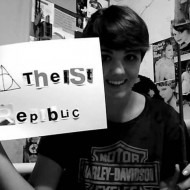



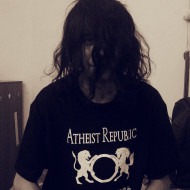
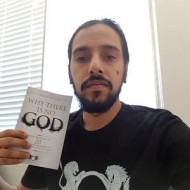















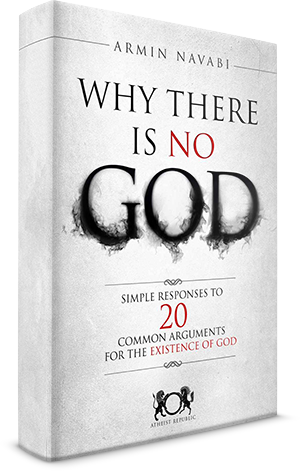
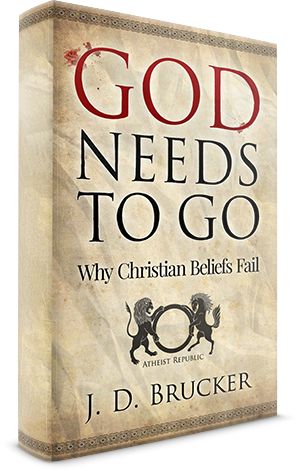



Thanks for sharing this.
Learned something today.
It would help to provide some references though.
I highly recommend this https://corpsoft.io/service/startup-development/ startup development service to anyone looking to start their own business. Their team is incredibly knowledgeable and has a wealth of experience in the startup world. They have helped me every step of the way, and I am incredibly grateful for their guidance and support.
Drift Boss is a racing game https://driftboss.io. The game uses intuitive controls to give you a different drifting experience. The game contains a number of different modes, including a ghost mode in the single player, so you can break through anytime and anywhere.